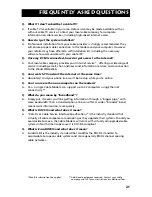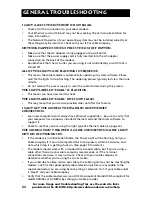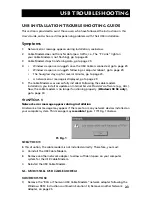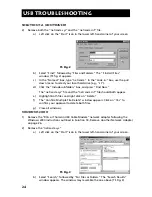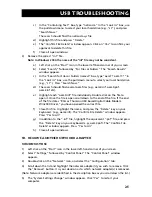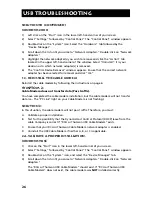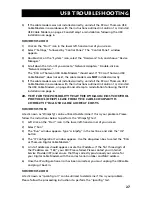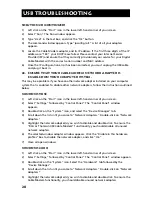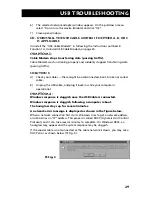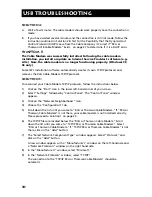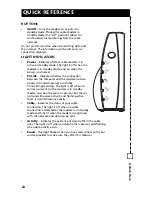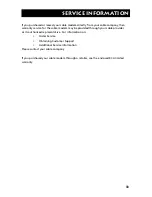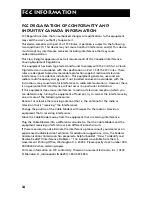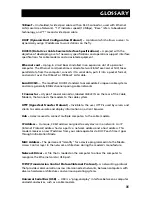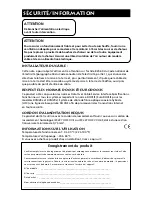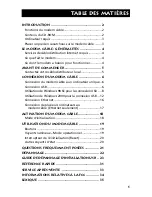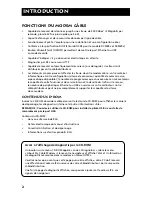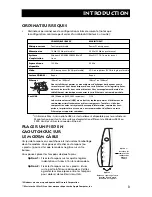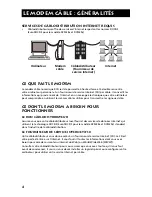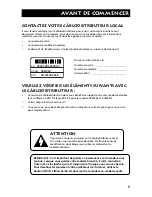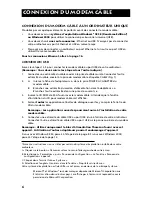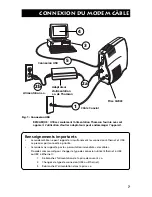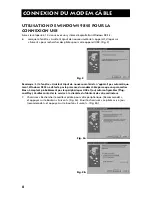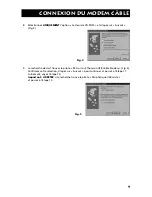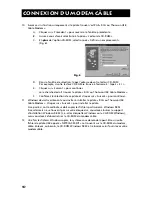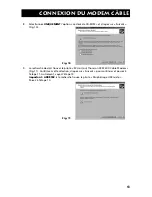
35
glossary
10BaseT –
Unshielded, twisted pair cable with an RJ-45 connector, used with Ethernet
LAN (Local Area Network). “10” indicates speed (10 Mbps), “Base” refers to baseband
technology, and “T” means twisted pair cable.
DHCP (Dynamic Host Configuration Protocol) –
A protocol which allows a server to
dynamically assign IP addresses to workstations on the fly.
DOCSIS (Data Over Cable Service Interface Specifications) –
A project with the
objective of developing a set of necessary specifications and operations support interface
specifications for cable modems and associated equipment.
Ethernet card –
A plug-in circuit board installed in an expansion slot of a personal
computer. The Ethernet card (sometimes called a Network Interface Card or NIC) takes
parallel data from the computer, converts it to serial data, puts it into a packet format,
and sends it over the 10BaseT or 100BaseT LAN cable.
EuroDOCSIS
— The modified DOCSIS standard to accomodate European cable systems
and more generally 8MHz channel spacing cable networks.
F Connector –
A type of coaxial connector, labeled CABLE IN on the rear of the Cable
Modem, that connects the modem to the cable system.
HTTP (HyperText Transfer Protocol) –
Invisible to the user, HTTP is used by servers and
clients to communicate and display information on a client browser.
Hub –
A device used to connect multiple computers to the cable modem.
IP Address –
A unique, 32-bit address assigned to every device in a network. An IP
(Internet Protocol) address has two parts: a network address and a host address. This
modem receives a new IP address from your cable operator via DHCP each time it goes
through Initialization Mode.
MAC Address –
The permanent “identity” for a device programmed into the Media
Access Control layer in the network architecture during the modem’s manufacture.
Network Driver –
A file that is loaded on the computer to allow the computer to
recognize the Ethernet card or USB port.
TCP/IP (Transmission Control Protocol/Internet Protocol) –
A networking protocol
that provides communication across interconnected networks, between computers with
diverse hardware architectures and various operating systems.
Universal Serial Bus (USB) –
USB is a “plug-and-play” interface between a computer
and add-on devices, such as a cable modem.

